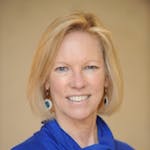
Four years ago on July 11, global leaders from the United Nations, governments, and civil society gathered in London for an historic conference to catalyze action for girls and women. They were driven by the belief that every girl and woman deserves the right to plan if and when to have children; yet many face barriers in accessing the family planning information, services, and supplies they want and need. That’s why more than 20 governments came together to commit to empowering an additional 120 million girls and women in the world’s poorest countries to use modern contraception by 2020, and Family Planning 2020 (FP2020) was born.
Since then, we have seen unprecedented progress. As we mark the halfway point of FP2020, more girls and women than ever before have access to life-saving and life-changing family planning information, services, and supplies that are grounded in principles of rights and empowerment. As of 2015, there were more than 290 million girls and women using modern contraception in the 69 FP2020 focus countries – almost 25 million more than in 2012.
The global partnership has grown tremendously since 2012 – nearly 40 countries and more than 90 partners have joined FP2020. In fact, over the past year, we have seen the largest wave of new and renewed commitments to FP2020.
Importantly, we now have better and more reliable data than ever before, giving us remarkable insight into where we are making progress on the FP2020 goal – and where we are lagging behind. While there is still much to learn, the data are helping to fill in the gaps in a highly complex picture of challenge and opportunity – telling us much more about the girls and women we are trying to reach and providing a solid evidence base to shape programs, investments, and policies that better meet their needs.
But we know that there’s still more to be done. Despite the incredible energy behind the partnership that has fueled our progress, we’re still falling short of our goal. There is a collective sense of urgency to accelerate progress in order to keep our promise to the millions of girls and women who are counting on us.
Additionally, the FP2020 goal is a critical milestone on the road to achieving the Sustainable Development Goals. Achieving universal access to sexual and reproductive health care is not only outlined in Goals 3 and 5, it is also vital to making progress on all of the Sustainable Development Goals, including reducing poverty and inequality, and promoting education and economic growth.
So how do we do this? We must do better at meeting the unique needs of the hardest-to-reach, namely young people and adolescents, the poorest, those living in humanitarian settings, and other marginalized girls and women.
In particular, we also need to put a special emphasis on elevating the voices of young people and making sure they are at the table when decisions are made. With the largest youth generation in history entering its reproductive years, and with the majority of young people living in poorer countries, we must do more to ensure that every young person has access to voluntary contraceptive services, supplies, and information. This will open new doors – giving young people, especially girls, more control over their futures and helping communities move from poverty to prosperity.
Finally, we need to keep ourselves accountable. We have a narrow window of opportunity to accelerate progress, and we must all raise our collective voices to ensure that the health, rights, and dignity of girls and women are not only central to the family planning conversation, but are central to the global development conversation.
The United Nations Foundation takes this accountability seriously, and that’s why we’re pleased to announce we are renewing our commitment to FP2020. We all have a role to play in making sure we reach our goals.
This global effort is about helping real women, families, and communities around the world realize their dreams. Together, we can help transform the lives of 120 million girls and women, and in turn, create a healthier and more equitable world for all.



 View All Blog Posts
View All Blog Posts